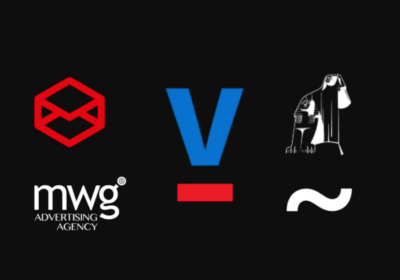Here’s a thought experiment: Think of the shipping industry. Ideally, what is the first image that comes rushing to your mind?
Apart from ships, yellow reflective vests, and white helmets, would it ever occur to you that a young woman is behind strategizing a sizable part of the industry? Well, Meet Nada El Ahwal: The woman who broke that natural stereotype.
Nada is a young leader; titled the Chief Strategy Officer of IACC Holdings. As a CSO of such a huge playmaker in the supply chain industry, questions arise on how she can manage the heavy load of a C-level job like this.
Intrigued, 925 decided to pay her a visit at the company in an effort to fathom the mystery behind her success…
How would you position IACC Holdings amongst Egypt’s global economy?
“IACC Holdings is a holding company that owns and operates several companies along the supply chain — which mirrors the movement of cargo. We, therefore, have several companies along several chains of the cargo supply chain
Firstly, we operate the container shipping line. And proudly, it’s a homegrown brand Transmar; Let alone being the only Egyptian, Middle Eastern, and African owned shipping line at the moment. Additionally, we own a terminal operator in ports, TCI, a shipping agency services business, Safina. And lastly, we have a 3PL logistics company called IACC Logistics =Essentially, this company works to become a logistics partner to any importer or exporter; whether they need movement to their containers or warehousing, distribution…etc.
As you can see, I have already gone through the whole supply chain cycle with you now. So, let’s get back to answering your question.
How do we compete with multi-national companies?
On the shipping line side, most of our competitors are huge multinationals; thousands of times bigger than we are. But what they do is that they connect the world. On the other hand, we’re a niche player as we work in a contained but active region. Usually, we define that region by what’s south of the Suez Canal; meaning the Red Sea, the Arabian Gulf, and the East Coast of Africa.
Hence, this is our competitive advantage. It’s even in our slogan: ’Your Regional Partner.’ And bottom line, we’re here to stay. Our sole purpose of existence is to connect regional businesses and economies together.
Today, when companies and governments sit down and talk about what they learned from Covid-19, they always talk about de-risking their supply chain. Simply, buy from your neighbors because they’re closer…Remember the word “Regional?”
Therefore, our biggest trading partner with Egypt is Saudi Arabia, which is only one sailing day away. It’s a huge bilateral trade. Naturally, we buy a lot of petrochemicals from them as we send them a lot of building materials, TVs, fresh produce, and much more.
How did IACC Holdings maintain its growth since 1979?
“Adapting to change…This is something that we repeat internally with our people. Additionally, it applies on so many levels. There’s a lot of adaptation that we had to do over the years regarding our business model.
For example, we used to own a fleet of vessels and in 2007, we decided to change the whole business model, sell the vessels, and charter instead. That was for several financial reasons: it was a heavy burden on our balance sheet. And chartering gave us the flexibility to scale the capacity up and down according to what’s happening in the market.
We talk to our people a lot about adapting and changing their mindset because the change is coming from everywhere and you need to have the mindset of anticipating — and welcoming – change. We understand that it’s against human nature, which resists change whenever it comes.
So, I would say that adapting to change is the mindset that helped our company continuously grow and evolve.”
As Nada El Ahwal, the Chief Strategy Officer of a shipping and logistics company, what kinds of problems do you face in a field that has the ancient stereotype of a “Man’s job?”
“Marine logistics is considered a man’s job because it interfaces deeply with all sides of the government. And with that said, I’ll tell you something very surprising…It’s not an issue and it’s not a man’s job.
I’ll tell you about my compounded issue. it’s being a “Young Woman.” Given my title, if I had been a young man, it would have been a little bit acceptable. However, being a young woman in a position like this has a lot of advantages: That’s the last profile people expect.
Do you consider it an advantage?
I assure you, there is no handbook for older men to know how to deal with young women in business. It makes them confused going into the room and somebody introduces you as a C-level executive at a big company. This shock factor actually plays to your advantage. Evidently, once they get over the initial stereotype, it’s easy to earn their respect and trust. And if you have something to say, they’ll want to hear it. In the end, they want an outcome out of any meeting they do and if you have it, they will be satisfied.
Honestly, I was worried about it before I joined. But so far, it hasn’t been as much of an obstacle; mainly, because it’s not on my mind. I think when you don’t have that chip on your shoulder, it will be easy to overcome any stereotype or any related issue. If you’re too conscious about it and blame everything on the stereotype, you are going to create problems for yourself.
What kind of values does IACC Holdings go by?
“Culture at IACC is a foundation for anything that we do. Therefore, our vision sits on three pillars: We want to be the employer of choice, we want to attract the best people to work and provide them with the best place to work. Because only then will they be motivated and happy enough to deliver the best service. And only then can I become the provider of choice and the supplier of choice.
Consequently, we will be able to have long-term relationships with our clients: they will come to us, we have a good reputation and word of mouth. All of that can allow me to become the investment of choice.
Our whole business strategy is relying on those three pillars. So, the very foundational level is our culture, which urges the necessity of six principles that are embedded in the DNA of the company…It’s how we hire and how we promote. KPIs are not enough for you here to climb up the corporate ladder. So, you can hit all of your KPIs and even excel at them — which will earn you a bonus and pat on the back – but if you’re not hitting your principles, you’re not getting promoted.”
Can you walk us through the six principles briefly?
“Oh, here we go with the memory test” she joked.
“First: Respect for all people, which is a cliche yet super important for us. Because it’s not the generic understanding that goes around the work culture. It includes respecting people’s time and effort: replying to e-mails on time, showing up in meetings on time…etc.
Second: Own It, which is obviously built on ownership. Because it’s really important for the client to feel that he/she is talking to the person in charge. So, to achieve this, we make our employees feel like they are the decision-makers in their area of expertise and that they have the autonomy to act.
Third: Get The Job Done, which is one of my favorites. It’s an action-oriented one. So, what we usually see is that someone finishes his part in a long pipeline and then says “I got the job done.” No, you didn’t. The most common debate is when an employee says that he/she worked very hard on a specific project. And I usually reply with “But you didn’t score a goal.”
What if “Scoring The Goal” wasn’t up to him/her?
Usually, we’re very tolerant of that issue and put up with it. We could simply fire the ones who are not getting us results, but we don’t do that. No, we try to understand what was going wrong, why he/she didn’t get the job done, and if there was something the company could have done to support. Because if this person is putting the effort and really trying to get it done, it’s really difficult not to get results. And 99% of the time, we discover a problem that is fixable by the management.
Fourth: Commit To Excellence, which goes hand-in-hand with the previous principle. It’s not just about getting the job done: it’s about getting it done very well. Excellence is our benchmark and anything below that is not acceptable.
Fifth: Walk In The Customer’s Shoes, and plays to our competitive advantage: being flexible when it comes to the customer’s needs and understanding what the customer’s pains and gains are. We go so far as to study our customer’s KPIs. For example, you (925) have annual objectives that will be assessed by the end of the year. And for 925 to buy my service, I need to know how to help you reach your objectives. And that’s also why we communicate with our clients in a super transparent way. That’s because if I was in the client’s shoes and a problem happened, I need to know exactly what happened.
Last: Be a Life-long Learner. We’re a big reading family and our CEO has his entire personal library shared with the company. I like to put it this way: “You’re either learning, or you’re leaving.” Learning and development go into everything that we do. And we try to develop our people as individuals and also as professionals. So, if you’re not learning in the recent pace of life, you’ll be obsolete in a matter of two to three years.”
From a company board’s perspective, what do you do to smooth communication between departments?
“I think that recently, companies that are struggling with communication issues are mainly the ones which have some sort of a hybrid model; combining the two models of working from the office and remote work.
After an 8-month period of remote work since Covid-19, we decided to go with the hybrid model forever. And I think we were the first local company to do so in Egypt. What we mean is that an office is a place for collaboration while work can be done remotely. For example, I come to the office to have my meeting, my performance reviews, meet clients, suppliers, and consultants. Meanwhile, I can do work remotely.
Do you consider working from home a disadvantage?
“First of all, when you’re behind a screen, you are not empathetic: you’re a very bad listener, you’re already preparing your response, you have your camera off, you’re looking into your phone, brushing your teeth, and doing two other things at the same time…I can go on and on but my point is that communication goes down the drain.
What’s even worse is that remote work starts creating “Silos” across the organization. Therefore, we decided to have a hybrid model. We encourage people to come two times a week to do their meetings, to see other people from different companies and departments; all while maintaining the flexibility that work can be done from home.”
When it comes to office work, is it a regular 925?
“We actually abandoned the concept of working hours. Here, it’s all based on results. We set out to get the job done with the excellence we offer. And that’s all we want.”
Give us an example of how you enhanced the remote work experience.
What we settled on was two things: first, every month, management takes out a group of people for face-to-face dinners and activities. They could also be newcomers. And second, we have a quarterly group-wide social outing. It’s a nice way to keep people engaged. Managers are also encouraged to take their teams to team lunches once a month.”
How do you try to maintain a stress-free environment in such a stressful field as shipping and logistics?
Nada paused and then laughed; saying “It’s really stressful. There’s no way to sugarcoat it.”
“But let me quote our CEO. He once said: ‘We’re in the business of developing people. It just so happens that we are in the field of logistics.’ With that in mind, we’re really happy to earn the certificate of ‘Best Places To Work‘ in September 2021 -2022.. It is a very emotional win because it is something we have been proactively working on for years. And it resonates with our Employer of Choice pillar, which our second-generation in the company started and the third generation is building on.
As you can see, it’s not something that happens overnight and it’s something we are really proud of. I think we won that award because we spend a lot of time and effort in alleviating the stress off our employees — Actually, I hate the word ’employee.’ they’re people. We also rebranded HR as ‘People Ops.'”
“Frankly, I can’t be the employer of choice if I think of my people as resources. And I know that sounds counter-intuitive. So, I don’t measure them by a punch in and out and a 9 to 5 because this culture is dead. You guys should rebrand.” She added with a laugh.
From a well-established company to a young entrepreneur, what can you give as advice?
“Three things: one is to depend on people and nothing gets done alone. I feel like a lot of founders have this ‘drive’ to improve something about themselves that they often miss building a fantastic team. In fact, building a team is a reflection of you as a founder. And be open about sharing your success with others and bringing them with you along the journey. It is so much more rewarding than doing it alone. There’s a quote I really like that says: ‘If you want to go fast, go alone. If you want to go far, go together.’
The second thing is obviously going to be adapting to change and welcoming it. Because if a 40-year-old company has the mindset of adapting to change to match the current circumstances, then definitely a young company should have that mindset.
The third one is never to compromise your principles or your values. Because your reputation is everything and it lasts for a lifetime.
A moment of reflection
We’ve all seen movies showcasing success stories of people who actually did not blame circumstances for their failures and eventually made it to be people with influence and an exciting story to tell. From Forrest Gump who defied all odds to become a remarkable person in his own way to Anakin Skywalker who conquered a galaxy while being dismembered; it’s worth mentioning that those stories, although far-fetched, are reflections of real people in the world we live in. Stereotypes are harmful indeed, yet they should not be your focus.
Nada is a live example of someone who built on glory with more glory; just by embracing the fact that she is a young woman, and that stereotyping may cause problems. She ended up where she is now; still making progress and being an effective and influential member of her company.
Excuses are not there. They can be…It all depends on what you want.





























